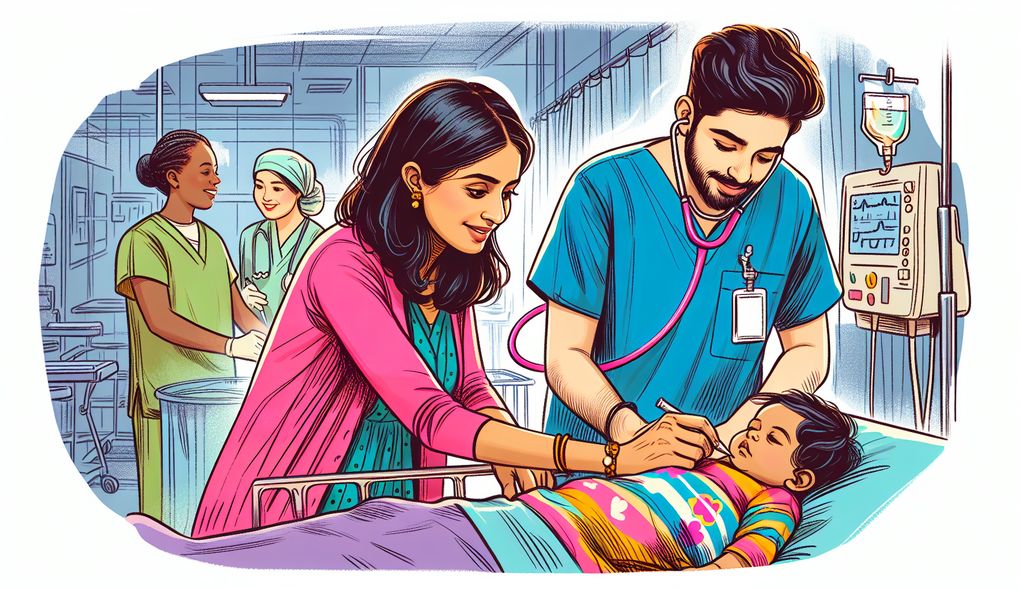How do you handle high-stress environments?
INTERMEDIATE LEVEL

Sample answer to the question:
In high-stress environments, I rely on several strategies to maintain composure and deliver high-quality care. First, I prioritize self-care and make sure to get enough rest, exercise, and time for relaxation to keep my stress levels in check. Additionally, I use time management techniques to stay organized and ensure that tasks are completed efficiently. I also practice mindfulness and deep breathing exercises to stay present and focused during stressful situations. Lastly, I believe in the importance of open communication and teamwork, so I make an effort to foster a supportive environment where everyone can contribute their ideas and concerns. By implementing these strategies, I have been able to effectively handle high-stress environments and deliver exceptional care.
Here is a more solid answer:
In high-stress environments, I have developed a set of techniques that allow me to excel. Firstly, strong communication skills are crucial in these situations, so I strive to maintain open and effective communication with my team members and patients' families. This ensures that everyone is well-informed and can work together efficiently. Additionally, critical thinking and problem-solving skills are essential in addressing complex health situations. I am adept at quickly assessing and analyzing information to make informed decisions when time is of the essence. As for leadership abilities, I understand the importance of guiding and instructing a medical team during high-stress situations. I have experience leading teams during emergencies, ensuring that everyone has their respective responsibilities and tasks. By utilizing these strategies and skills, I am able to thrive and provide optimal care in high-stress environments.
Why is this a more solid answer?
The solid answer expands upon the basic answer by providing specific examples and experiences that demonstrate the candidate's proficiency in the required skills from the job description. It addresses all of the evaluation areas and provides a more comprehensive response.
An example of a exceptional answer:
Handling high-stress environments requires a combination of emotional resilience, strategic planning, and effective communication. As a Pediatric Critical Care Specialist, I have faced numerous high-stress situations and have developed a systematic approach to handle them. Firstly, I prioritize self-care by maintaining a healthy work-life balance and engaging in stress-reducing activities such as regular exercise and mindfulness practices. This enables me to approach high-stress situations with a clear and focused mind. Secondly, I utilize advanced critical thinking skills to quickly assess and prioritize patient needs in critical situations. This allows me to make informed decisions and take prompt action. Moreover, my strong communication skills enable me to effectively collaborate with multidisciplinary teams and provide clear instructions during high-stress scenarios. Lastly, my leadership abilities shine in high-stress environments as I have successfully guided and motivated my team to deliver exceptional care under pressure. By leveraging these skills and strategies, I have consistently excelled in handling high-stress environments and providing the best possible care to my patients.
Why is this an exceptional answer?
The exceptional answer goes above and beyond the solid answer by providing additional details, examples, and experiences that demonstrate the candidate's exceptional proficiency in the required skills from the job description. It showcases the candidate's ability to handle high-stress environments and provide compassionate care.
How to prepare for this question:
- Familiarize yourself with stress management techniques such as mindfulness and deep breathing exercises. Practice incorporating these techniques into your daily life to build resilience.
- Reflect on past experiences where you have successfully managed high-stress situations. Prepare specific examples to illustrate your ability to handle pressure.
- Develop your communication skills by practicing active listening, assertiveness, and clarity in conveying information. These skills are essential in high-stress environments.
- Brush up on your critical thinking and problem-solving abilities by reviewing complex medical cases and considering different approaches to diagnosis and treatment.
- Take up leadership roles in your current or previous positions to develop and demonstrate your ability to guide and motivate a team during high-stress situations. Seek out opportunities to lead emergency response drills or simulations.
What are interviewers evaluating with this question?
- Ability to work effectively in high-stress environments
- Strong communication skills
- Leadership abilities
- Critical thinking and problem-solving skills

